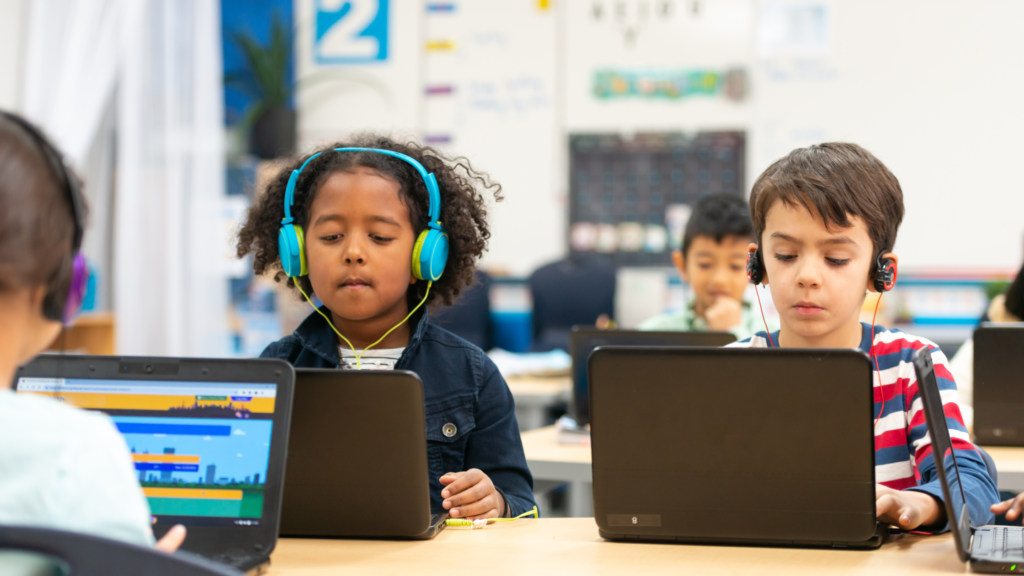Boosting Education Access with Innovative Technology
In today’s rapidly evolving digital age, technology has become a pivotal force in transforming various sectors, including education. Access to quality education remains a significant challenge, particularly in underserved and remote areas. However, technology offers innovative solutions to bridge this gap, providing new opportunities for learning and growth. For organizations like Bottom Billion Corporation (BBC), enhancing education access aligns with their mission to empower communities and promote sustainable development. This article explores how technology is revolutionizing education access, the benefits it brings, key strategies, and real-world examples of successful initiatives. The Role of Technology in Enhancing Education Access Bridging Geographical Barriers One of the most significant advantages of technology in education is its ability to transcend geographical limitations. Online learning platforms, virtual classrooms, and digital resources enable students from remote and underserved areas to access quality education. For instance, programs like Khan Academy offer free online courses accessible to anyone with an internet connection, providing educational resources to millions of students worldwide. Personalized Learning Technology facilitates personalized learning experiences tailored to individual student needs. Adaptive learning software and AI-driven educational tools analyze student performance and customize lessons accordingly. This personalized approach ensures that students receive the support they need to succeed, catering to different learning paces and styles. Programs like DreamBox Learning and Coursera use AI to deliver personalized learning experiences, improving student outcomes. Cost-Effective Solutions Digital education solutions often prove to be more cost-effective than traditional methods. Online courses and e-learning platforms reduce the need for physical infrastructure, textbooks, and other educational materials. This cost reduction is particularly beneficial for educational institutions in developing regions with limited resources. By investing in technology, these institutions can provide quality education without incurring prohibitive costs. Key Strategies for Enhancing Education Access with Technology Expanding Internet Connectivity To maximize the benefits of educational technology, it is crucial to expand internet connectivity in underserved areas. Governments, NGOs, and private organizations must collaborate to improve infrastructure and provide affordable internet access. Initiatives like Google’s Project Loon and Facebook’s Connectivity initiatives aim to bring internet access to remote regions, enabling more students to benefit from online education. Leveraging Mobile Technology Mobile technology plays a vital role in enhancing education access, especially in regions where smartphones are more prevalent than computers. Mobile learning apps and SMS-based educational programs offer flexible and accessible learning opportunities. For example, Eneza Education provides SMS-based learning solutions to students in rural Africa, delivering educational content through mobile phones. Developing Localized Content Creating educational content tailored to local languages and cultural contexts is essential for effective learning. Technology enables the development and distribution of localized content that resonates with students’ backgrounds and experiences. Organizations like Pratham in India develop digital learning resources in local languages, ensuring that students receive education relevant to their cultural context. Training Educators Equipping educators with the skills to effectively use technology in the classroom is crucial for successful implementation. Professional development programs and training workshops can help teachers integrate digital tools into their teaching methods, enhancing their effectiveness. Initiatives like Intel’s Teach Program provide training for educators worldwide, promoting the use of technology in education. Real-World Examples of Technology-Driven Education Initiatives Bridge International Academies Bridge International Academies is a social enterprise that leverages technology to deliver quality education in underserved communities. Using a data-driven approach, Bridge operates a network of low-cost private schools in Africa and Asia. Teachers use tablets to access lesson plans and track student performance, ensuring a consistent and high-quality education experience. Bridge’s model has significantly improved student learning outcomes, demonstrating the impact of technology in education. One Laptop per Child (OLPC) One Laptop per Child (OLPC) is a nonprofit initiative that provides low-cost, durable laptops to children in developing countries. These laptops are equipped with educational software and resources, enabling children to learn independently and collaboratively. OLPC’s mission is to empower children through education, and their program has reached millions of students worldwide, bridging the digital divide. Akilah Institute The Akilah Institute in Rwanda uses technology to enhance education for women in East Africa. The institute offers a blended learning model that combines online coursework with in-person instruction, providing students with flexible learning options. Akilah’s approach has empowered many women with the skills and knowledge needed to pursue successful careers, contributing to gender equality and economic development. Investing in educational technology is essential for improving access to quality education, particularly in underserved regions. By leveraging online platforms, mobile technology, and localized content, we can bridge geographical barriers, personalize learning experiences, and reduce costs. Real-world examples like Bridge International Academies, One Laptop per Child, and the Akilah Institute illustrate the transformative power of technology in education. For Bottom Billion Corporation (BBC), aligning investments with educational technology initiatives supports their mission to empower communities and promote sustainable development. By prioritizing education access through technology, BBC can drive significant social and economic progress, creating a more equitable and prosperous future. As we continue to innovate and invest in digital learning solutions, we unlock the potential for millions of students worldwide to achieve their dreams and contribute to global development.
Boosting Education Access with Innovative Technology Read More »

